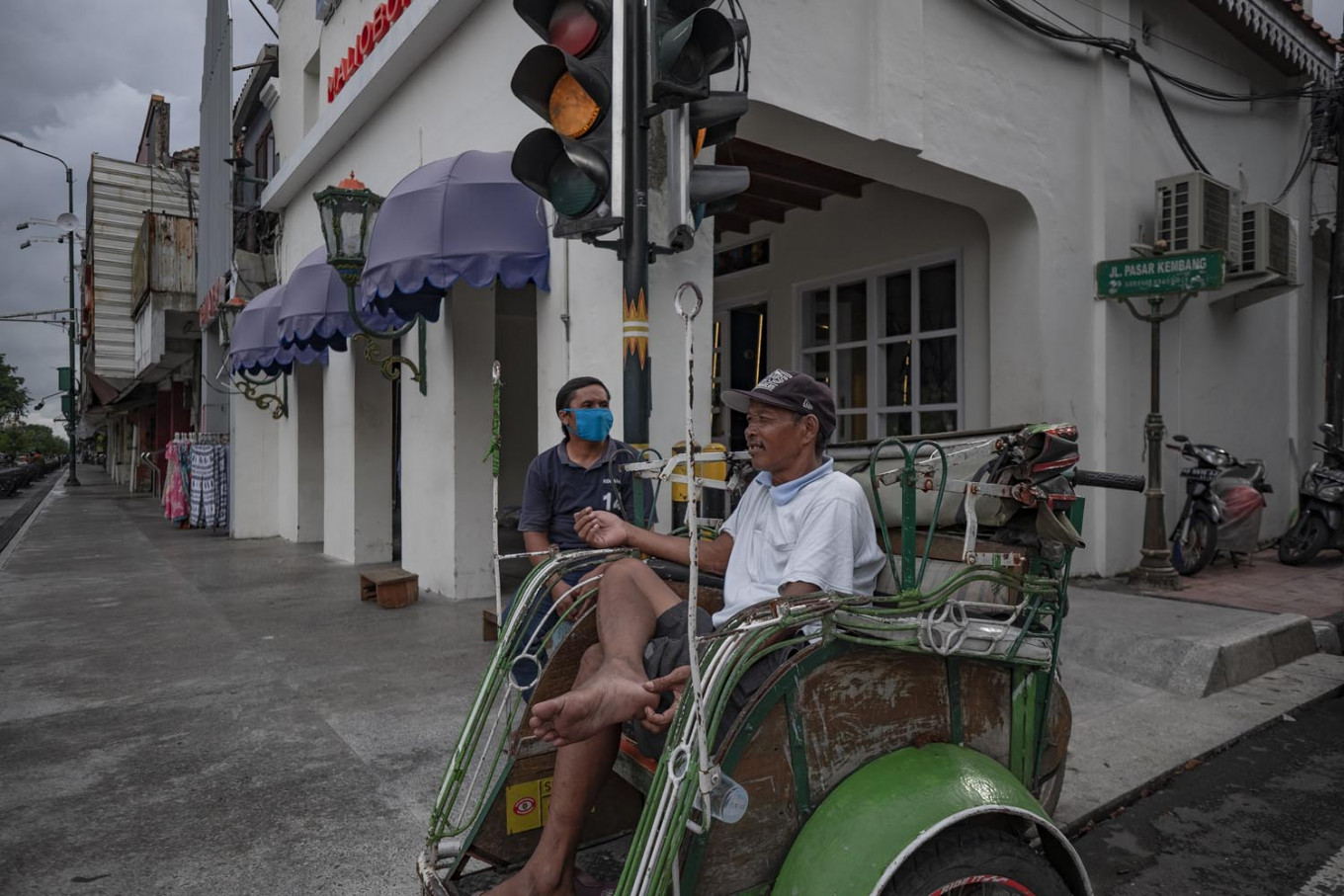Popular Reads
Top Results
Can't find what you're looking for?
View all search resultsPopular Reads
Top Results
Can't find what you're looking for?
View all search results'Aquarius', 'coronation' or 'the shock doctrine'?
Is the COVID-19 crisis going to wake us up, or are we going to remain drowsy, crash headlong into a disaster and possibly die a painful death?
Change text size
Gift Premium Articles
to Anyone
H
ave you ever driven whilst drowsy? Several years ago, I could not shake off my drowsiness and fell asleep at the steering wheel — yes, in a speeding car! I hit a road separator and almost toppled the car over. I woke up faster than if I had suddenly had ice-cold water doused on me! All drowsiness vanished without a trace! With heart pounding and eyes wide open, I made it home safely. Phew, close call!
Is the COVID-19 crisis going to wake us up, or are we going to remain drowsy, crash headlong into a disaster and possibly die a painful death?
There’s a quote about crises. “When written in Chinese, the word crisis is composed of two characters — one represents danger, and the other represents opportunity.”
Yes, the coronavirus is dangerous, but it does offer opportunities to reflect and change our ways.
The pandemic has brought out the best in people around the globe. “Communities all around the world are displaying extraordinary levels of comradery to help each other through the COVID-19 pandemic”, observed Michael Broom of the World Economic Forum.
A poem, called “When religion lost God” by someone posing as respected Islamic leader Mustofa Bisri aka Gus Mus, about the frailty of rituals when places of worship close, went viral recently. When the coronavirus came, you’re forced to look for God in your isolation, as God cannot be found in crowds or in sharia. Yes, yes, yes!
The other silver lining of the worldwide lockdown has been the drastic decline in pollution and traffic. Imagine, blue skies over Jakarta and many other cities around the world! A rare sight indeed!
Charles Eisenstein, author and gift economy advocate, wrote a beautiful reflective essay called “Coronation”. “COVID-19 is showing us that when humanity is united in common cause, phenomenally rapid change is possible.”
So, does this mean we’re embarking on an “Age of Aquarius”, where there’s “a shift away from duality and self-centered thinking towards a more humanitarian perspective that considers the oneness of all beings”?
Dream on.
With regards to the reduced pollution, according to Li Shuo, senior climate and energy policy officer at Greenpeace in Beijing, “It’s hardly a sustainable way to reduce emissions,” he said.
When the pandemic passes, companies and industries will scramble to make up for lost production time. As Li Shuo said, he’s worried that “efforts to reignite China’s economy might end up making the coronavirus epidemic a step backward for climate efforts”. This will also be true of other countries.
Have you heard of “disaster capitalism”? It’s defined as “the practice [by a government, regime, etc] of taking advantage of a major disaster to adopt liberal economic policies that the population would be less likely to accept under normal circumstances”.
Naomi Klein discusses this in her 2007 book The Shock Doctrine: “the political strategy of using large-scale crises to push through policies that systematically deepen inequality, enrich elites, and undercut everyone else”.
Klein points out that “the coronavirus is the perfect disaster for disaster capitalism” and how “market capitalism provides ‘solutions’ to crises that exploit and exacerbate existing inequalities” — of class, race and gender.
It’s not clear yet how “the shock doctrine” will play out in Indonesia because these are early days, but time will tell.
Some observers have pointed out how COVID-19 has been used for political purposes. Regional heads such as Jakarta Governor Anies Baswedan and West Java Governor Ridwan Kamil, who may have presidential ambitions in 2024, seem to be subtly attempting to undermine President Joko “Jokowi” Widodo’s efforts in dealing with the pandemic. For example, on the fourth day of the large-scale social restrictions (PSBB), there were still throngs of people in commuter line stations in Jakarta, Depok, Bekasi and Tangerang. The central government is spending billions of rupiah to help the regions, but if the regions can’t contain their residents, this will cause the virus to spread quickly. This is only political speculation, but it would hardly be the first time there has been a lack of coordination between the central government and the regions.
In Hungary, Prime Minister Viktor Orban, a populist leader, has used the crisis to seize more power, to rule by decree, to crush minorities and curb immigration. According to Imre Szijarto and Rosa Swartzburgh in an article for the Jacobin online magazine published on April 8, Orban’s administration “has done all this in the name of the response to coronavirus — exploiting its emergency powers to silence dissent and demonize minorities”.
During the 2014 and 2019 presidential campaigns, both candidates, Prabowo Subianto and Jokowi, employed populism to try and win the election. In his second term (2019 to 2024), with an unexpected looming crisis, it is not unlikely that Jokowi will also resort to more controlling measures, which will benefit the ruling elite at the expense of the poor. Indonesia has already been under oligarchic rule anyway — the gap between rich and poor will continue to widen as it has over the decades.
The coronavirus is a turning point in history. While we can’t control our leaders, let alone national and international politics, we can certainly make this a turning point in our personal lives. After being touched by the virus, at least metaphorically, and facing the possibility of death, would you try to redeem your past mistakes, or just carry on till your mistakes catch up with you?










